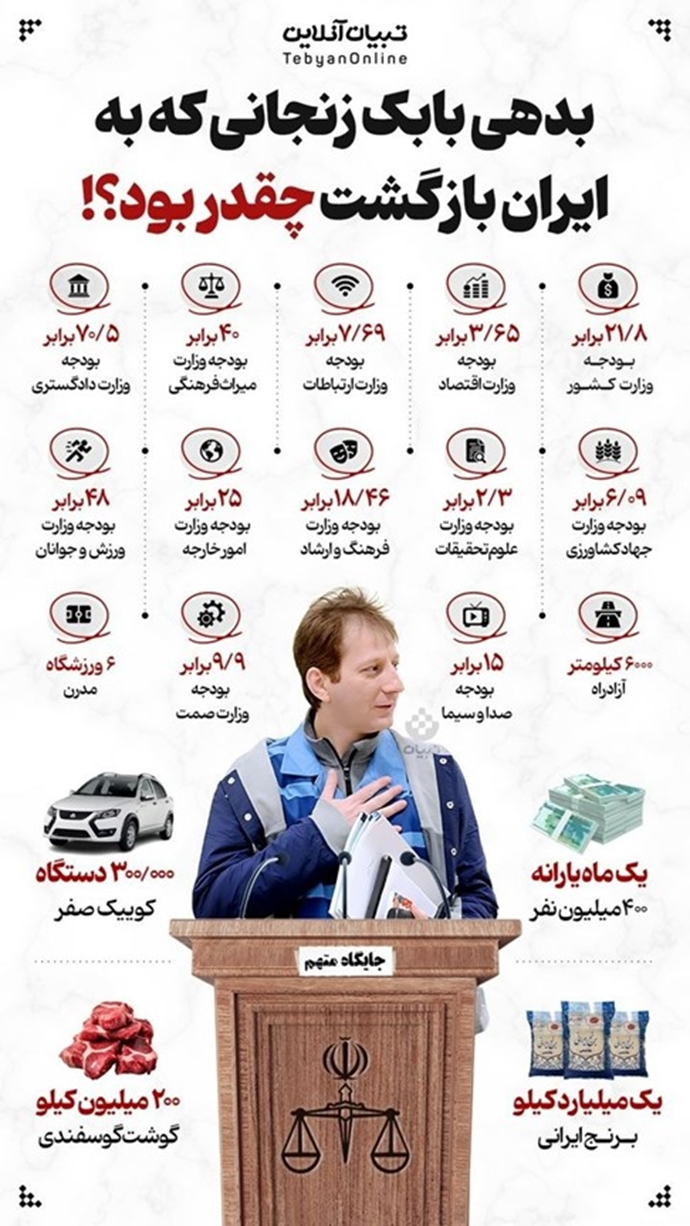While Iranians were reeling from the tragic deaths of Nika Shakarami during the 2022 protests and the imminent execution of Toomaj Salehi, the regime’s judiciary made a shocking announcement. Babak Zanjani, a notorious figure at the center of the worst corruption case in Iranian history, was granted amnesty despite facing charges of “corruption on earth” – a crime typically punishable by death.
Zanjani’s lawyer claimed that his client’s assets were returned to the country, leading the Supreme Leader to grant amnesty and reduce the death sentence to 20 years. With over 10 years already served, Zanjani is now eligible for parole.
This decision by the regime’s notoriously corrupt judiciary, which itself labeled the case as “one of the most important in fighting economic corruption,” has sparked outrage. The regime claims to have “reached a conclusion” by recovering Zanjani’s assets, yet the accusations against him paint a picture of immense financial crimes:
- Disrupting the economic system through an organized network
- Using fake documents and large-scale money laundering
- Widespread fraud against banks and the Ministry of Oil
- Forgery and money laundering exceeding €1 billion
These charges, particularly “corruption on earth,” are typically met with the harshest punishment.
The public outcry was so significant that even state-run media outlets felt compelled to acknowledge the dissonance. Eghtesad News stated, “While recovering the money is commendable, it is not enough. Society sees all aspects of the case and has its own judgment.” They questioned the lack of transparency and involvement of higher officials in the corruption.
Tebyan Online depicted the vastness of Zanjani’s debt through an infographic, highlighting that this was just a fraction of the entire scandal.

This lenient sentence stands in stark contrast to the regime’s harsh punishments for petty crimes. In one recent case, a poor man caught stealing a sheep faced the amputation of his fingers. When public outcry arose, the Chief Justice of Khorasan Razavi province dismissively stated that some judges even advocated for the man’s execution.
Furthermore, Prosecutor General Mohammad Jafar Montazeri previously lamented that human rights concerns prevent the regime from implementing “divine verdicts” without limitations.
This blatant discrimination has raised concerns about the regime’s legitimacy. Eghtesad News warned, “The lack of transparency in cases like Zanjani’s, coupled with increasing societal and judicial strictures for ordinary citizens, creates a dangerous divide in society, one that will be filled with distrust.”





